Feature
In conversation: Jean Rondeau
Continuo Connect meets the French harpsichordist extraordinaire
Share this

FIRST PUBLISHED 17 AUG 2025
Described as ‘one of the most natural performers one is likely to hear on a classical music stage’ by the Washington Post, Jean Rondeau is a veritable global ambassador for his instrument. His outstanding talent and innovative approach to keyboard repertoire have marked him out as one of today’s leading harpsichordists. Rondeau studied harpsichord at the Conservatoire National Supérieur de Musique in Paris, followed by training in continuo, organ, piano, jazz & improvisation, and conducting. He completed his musical training at the Guildhall School of Music and Drama in London. In 2012, he became one of the youngest performers ever to take First Prize at the International Harpsichord Competition in Bruges (MAfestival 2012), aged 21. Continuo Connect caught up with him ahead of his solo performance at the Back2Bach Festival in Peckham in September.
What made you choose the harpsichord?
The story is simple: I heard it on the radio when I was five years old, and I was instantly struck - captivated - by the sound of the instrument. I didn’t know what it was, who was playing, or what was being played, but I have a very vivid memory of immediately asking my parents if I could play ‘that’.
What is your earliest musical memory?
Growing up in Paris, I had the good fortune to access harpsichord lessons at a local conservatoire. I began my musical journey under the guidance of one of the pioneers of the harpsichord revival: Blandine Verlet. From the very outset, I entered not into the realm of the academic, but into that of music itself. She had the remarkable ability to listen to each student individually, rather than impose a preconceived method, as institutions often implicitly do. Our natural approach consisted in engaging directly – and solely – with the musical text. She nourished my strong desire to play works by the composers I already deeply cherished. Thus, I immersed myself in the very heart of music. My earliest memories are of pieces by composers I still explore today with undiminished passion: Louis Couperin, Bach, Rameau, and others. I vividly remember, at the age of six, playing a short, unmeasured prelude by Louis Couperin – a unique form in the history of music, and so specific to the harpsichord.
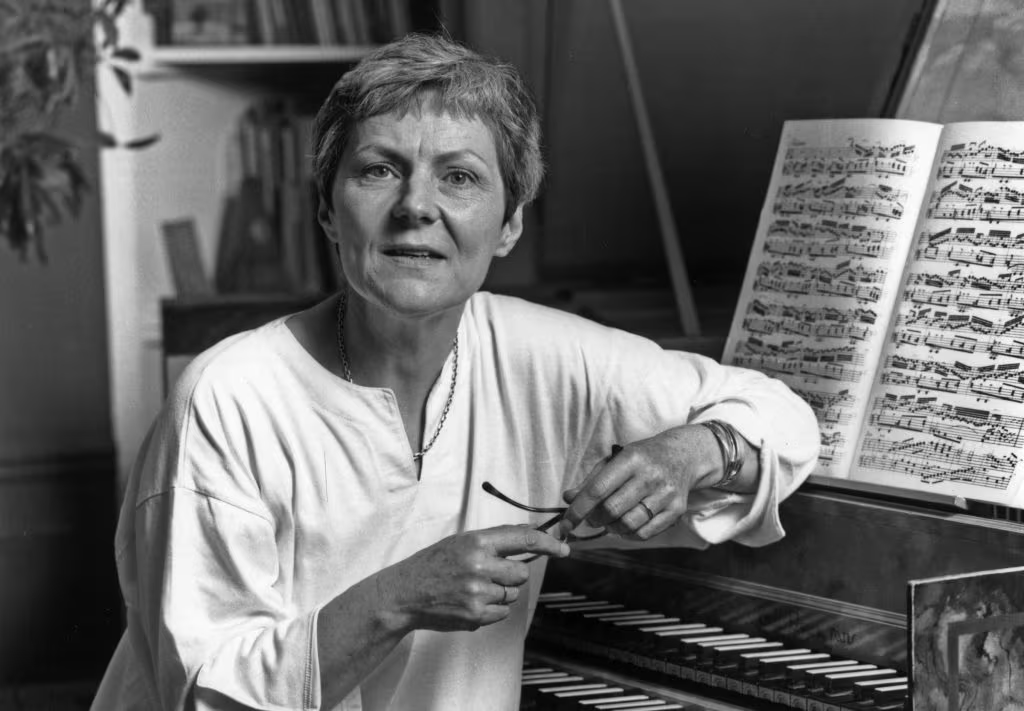
How has classical music influenced your life outside of performing?
In your question, I would be inclined to remove the word ‘classical,’ which, in this context, fails to inspire me. It is a historically misleading term that lumps together a vast array of musical styles and genres spanning centuries, and as such, lacks precision. My work precisely consists in approaching musical languages with sharp and specific historical awareness, in order to render musical texts as faithfully as possible within their temporal and spatial frameworks.
Jean Rondeau performs Joseph-Nicolas-Pancrace Royer’s piece, Vertigo, for solo harpsichord
Moreover, the term ‘classical music’ resonates with a certain sociological weight – one that I seek either to avoid or, more accurately, to engage with carefully. I wish to question tradition as a mechanism of repetition, while also resisting the political appropriation of this musical language through the codes and structural systems that shape this milieu. So no, so-called classical music, in and of itself, is not a source of inspiration to me. But music in all its forms, including those from a vast and ancient past, is a source of joyous passion. It elevates me, animates my practice and daily life, guides my thinking and my way of being in performance, on stage, and even in relationship to others. That said, music does not feed itself alone; I see it as an autonomous entity, one that I occasionally grasp – like a passing train.
Do you have a lucky charm or ritual that you follow before important concerts?
Your question compels me to pose another: what makes a concert ‘important’? Does this imply that certain audiences are more important than others? How do we define such a thing? For me, the audience is an integral part of the process – indeed, it is a constitutive element of the heightened present that music summons. It allows me, while on stage, to inhabit the role of listener alongside them, to experience the musical moment as a shared, communal energy within the ritual of performance.
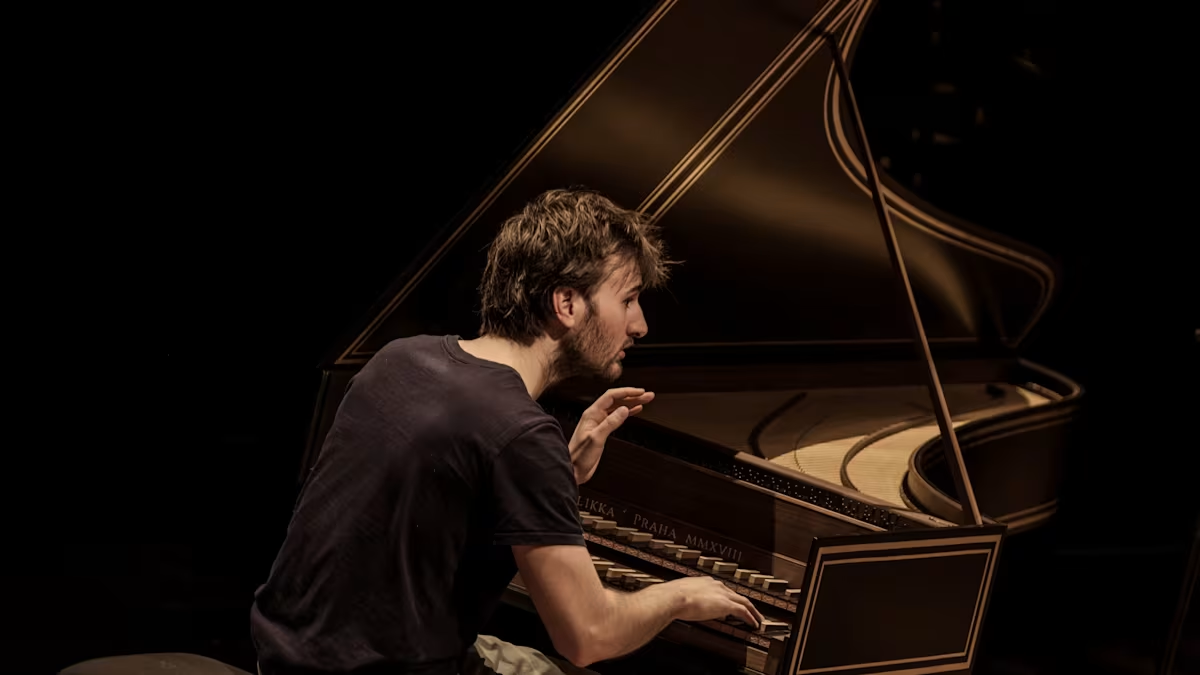
At the same time, another part of me - active in a different way, because I am ‘in play’ and thus ‘aware of what is to come’ – inhabits a precise dance, the contours of which are drawn by the music in real time. In order for this choreography to be as true as possible, I must prepare physically. I must prepare my body. So, although I don’t adhere to a fixed or habitual routine, I maintain a consistent mental relationship to the concert as a ritual – one that requires both physical and spiritual preparation.
Can you describe the feeling of truly understanding a complex piece of music?
I believe there are infinite degrees of understanding. To truly grasp a musical text, one must first accept that knowledge and analysis are shrouded in layers. One may choose to specialise in one component – for instance, to pursue an in-depth harmonic analysis of a work. But I believe it is through the multiplicity of pathways taken that a broader, more enduring understanding of the musical text is achieved. Some works have been central to such a process of deep engagement for me – Bach’s Goldberg Variations, for example, or the oeuvre of Louis Couperin. In the case of the Goldberg Variations, I could say this: the more one delves into the score, the more one thinks one has found answers, the more new questions and mysteries emerge. So perhaps understanding a work is, above all, to embrace a non-linear mystery.
Jean Rondeau performs the opening Aria from JS Bach’s Goldberg Variations, recorded for the Netherlands Bach Society’s project, ‘All of Bach’, on 6 Jun 2017 at the Concertgebouw, Bruges
Who is your favourite composer, and why?
I’d be curious to know whether any musician has ever answered this question precisely and honestly. As for me, I am entirely incapable of doing so.
What would someone from 400 years ago think about 'early' music today?
I imagine they would be surprised that we devote so much interest and energy to reviving music from the distant past. In their own time, music would likely be predominantly new. They would probably be astounded by the revolutionary existence of recording – by the possibility of listening to music in a way that is not live. And they might be disoriented by the bourgeois relationship to the concert format, and by the way ‘classical music’ intertwines with entertainment. Naturally, the diversity of musical languages that coexist and interconnect today would likely overwhelm them – in the best possible sense.
The Jean Rondeau Playlist by Erato France on Spotify.
You have studied many musical disciplines over the years, including conducting and composition. Could you tell us how this came about, and how it complements your harpsichord playing?
I enjoy the depth that specialisation offers – the opportunity to immerse oneself in precise musical questions. But I’m also wary of the blinders it can impose on one’s perspective. Approaching music from multiple angles allows me to engage with it more authentically.
Despite the necessary and intentional specialisation in my work, I prefer to define myself by what I am doing in the moment, rather than by the social label attached to my profession. I am as much a musician as a non-musician in my understanding of my practice. That is to say, I am a musician when I play or engage with music, but that constitutes only a minority of my time. Perhaps this is what allows me to address the music I play both to musicians and to non-musicians.
Jean Rondeau's album, Paula. The music was almost entirely written by Rondeau, but he does not perform on the soundtrack.
I have always composed music; I have always improvised – this latter gesture, to me, is inseparable from interpretation when one is a player of music. Conducting, on the other hand, interests me less – particularly in what it represents and conveys politically. In truth, one does not even play an instrument as a conductor. It is a solitary dance, and paradoxically, not one that produces sound.
Jean Rondeau: Improvisation I (Live France Musique, Apr 2016)
Peckham Multistorey Car Park has become the home to many fascinating musical projects over the last few years. What are your thoughts on this unusual concert venue in particular, and how do different venues and acoustics shape your performance in general?
What I truly hope is that it helps bring in a new audience.
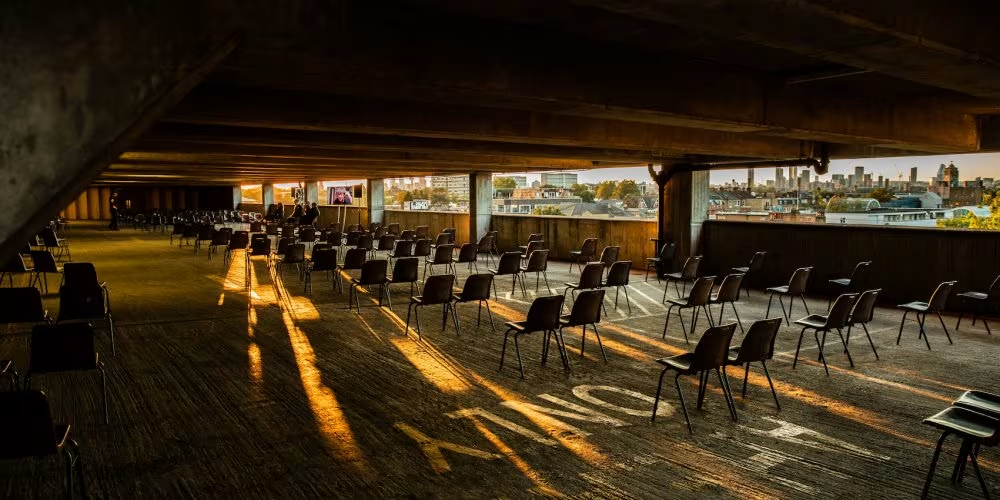
Alongside your busy performing career, you regularly give masterclasses. Can you tell us
about the place of teaching within your work?
I believe my musical practice is inherently bound to the idea of transmission. I enact this not only when I teach, but also when I perform, since my approach to musical interpretation is fundamentally pedagogical and narrative. I strive for the musical text to be first and foremost clear and comprehensible. Though I don’t teach regularly, when I do, I do so with as much – if not more – passion than when I perform.
Discover Jean Rondeau's upcoming UK performances on his Artist page.
Share this
Keep reading
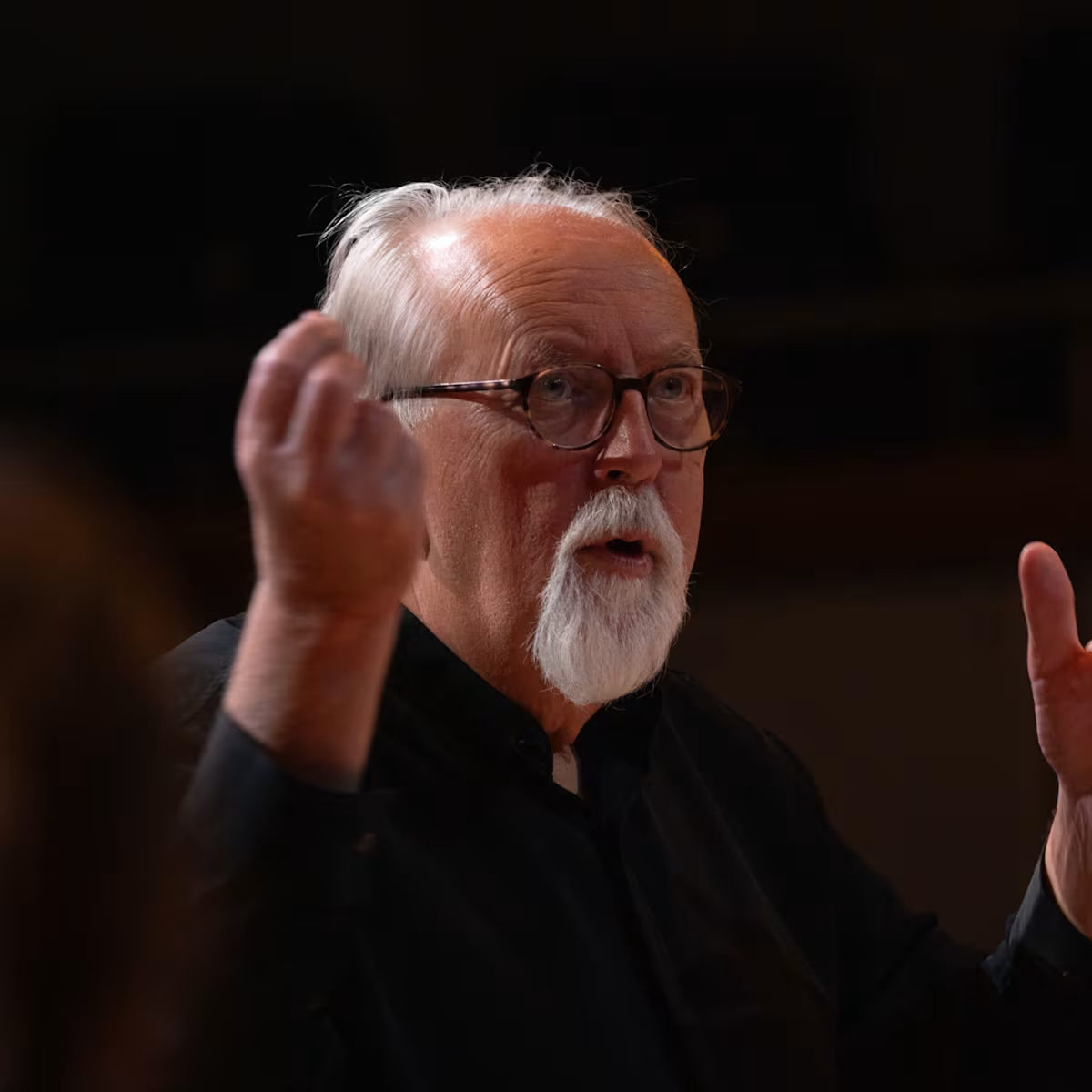
Jeffrey Skidmore: Made in the Midlands
As he approaches his 75th birthday, Jeffrey Skidmore reflects on a career that has shaped musical life in Britain in distinctive ways.
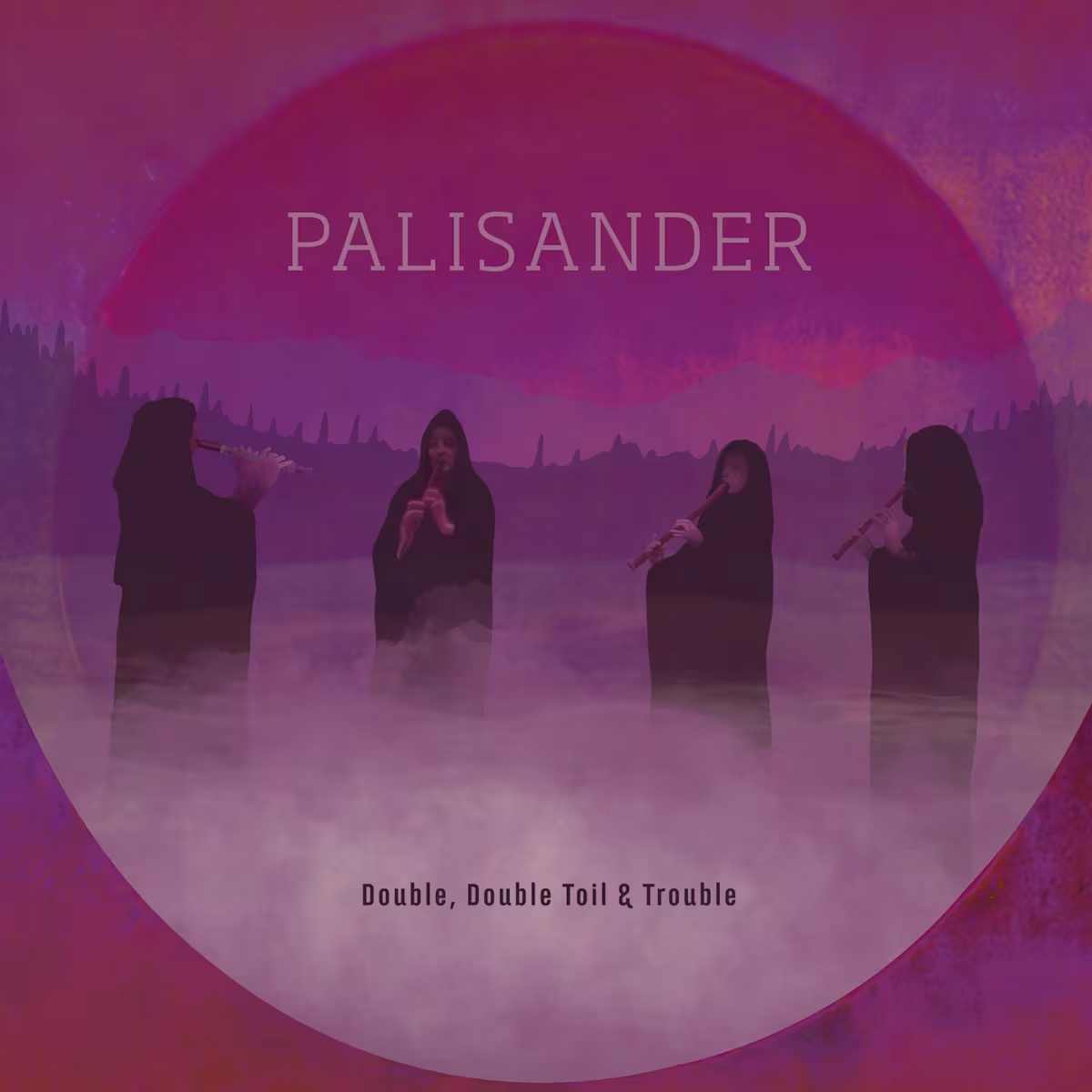
Double, Double Toil & Trouble | Palisander
Palisander’s new album, Double, Double Toil & Trouble, features repertoire spanning 900 years, inspired by the mystical and magical.
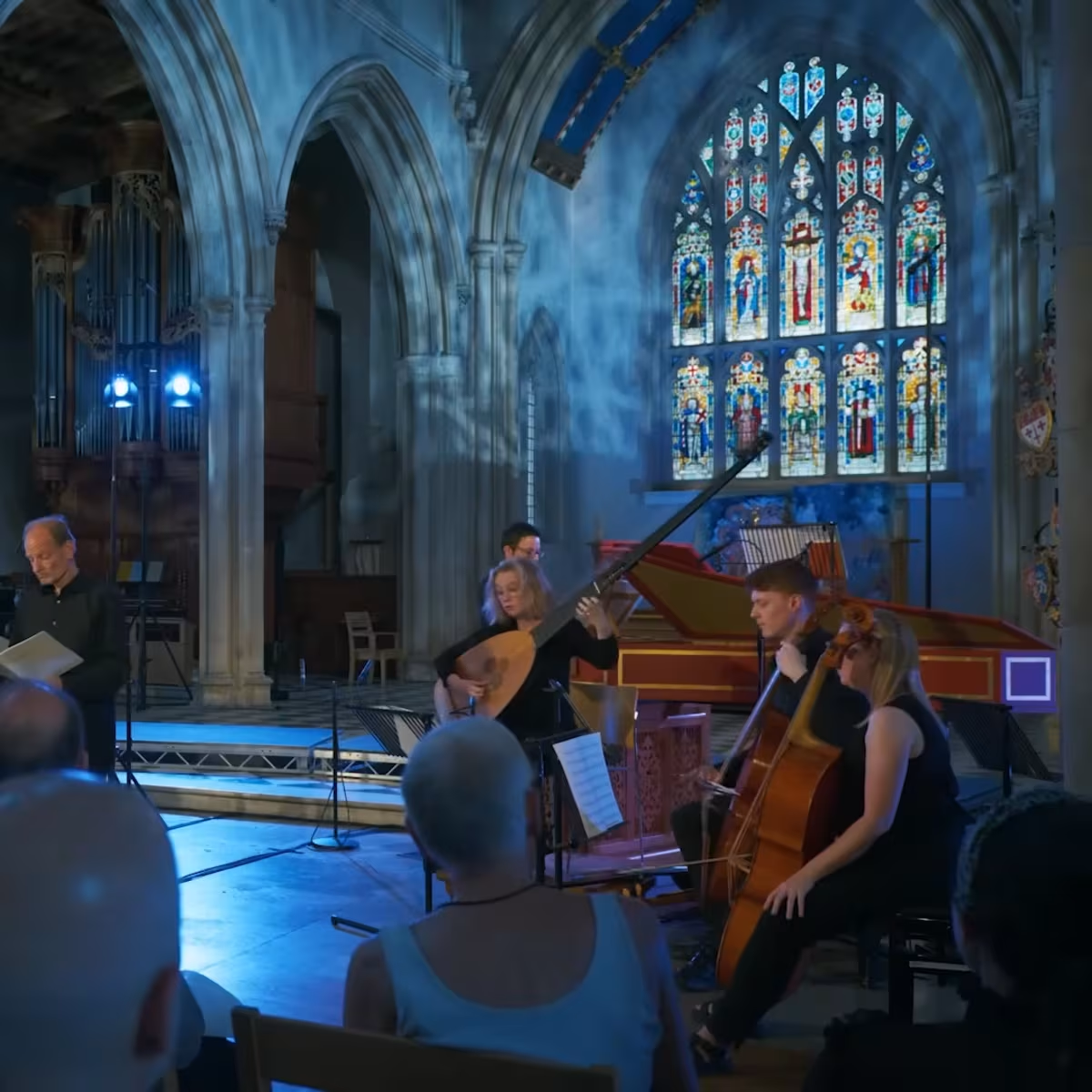
Spiritato with Elizabeth Kenny | Music to her Majestie: Odes for the last Stuart
On Queen Anne’s birthday, we share Spiritato and lutenist Elizabeth Kenny’s musical portrayal of the last Stuart and her lifelong patronage of the arts.




